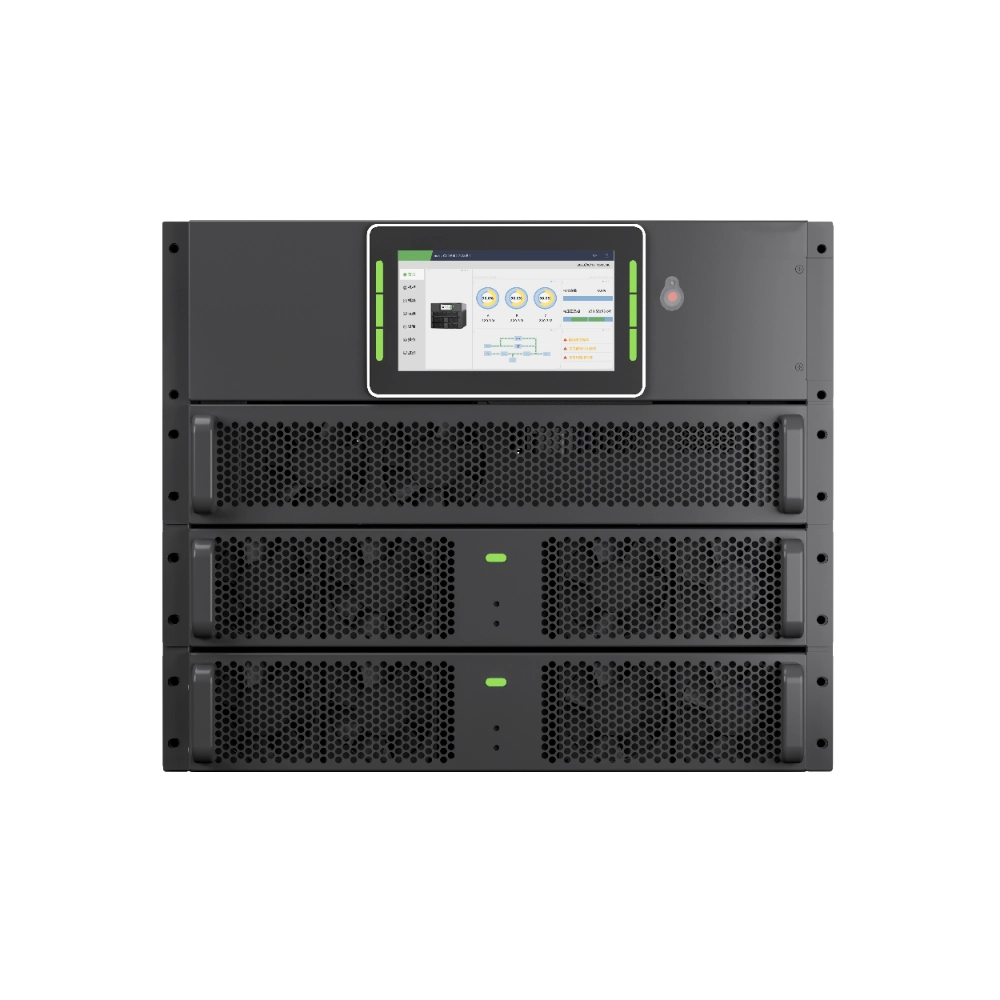Разница между промышленными онлайн-ИБП и низкочастотными ИБП
Время выпуска: 24.07.2025
Основное различие между промышленные онлайн-ИБП и низкочастотные ИБП заключается в их дизайне и функциональности.
ДизайнПромышленный онлайн-ИБП специально разработан для промышленных условий, где высокая надежность и производительность имеют решающее значение. Он изготовлен из прочных компонентов, имеет прочную конструкцию, способную выдерживать суровые промышленные условия, и имеет степень защиты IP42. В отличие от него, стандартный низкочастотный ИБП предназначен для общего применения и может не обладать такой же прочностью и надёжностью, как промышленные ИБП, обычно имеющие степень защиты IP20.
Выходная мощностьПромышленный онлайн-ИБП обеспечивает бесперебойное и стабильное электропитание даже при колебаниях напряжения или его отключении. Он работает по технологии двойного преобразования: входной переменный ток преобразуется в постоянный, а затем обратно в переменный, обеспечивая чистое и бесперебойное питание критически важного промышленного оборудования. ИБП постоянного тока полностью изолирован от электросети и оснащен байпасом с функцией стабилизации напряжения изоляции для защиты от скачков напряжения. С другой стороны, низкочастотный ИБП могут наблюдаться небольшие задержки при переключении питания во время отключений, при этом обеспечивается только изоляция выхода, что может привести к кратковременным перебоям в подаче электроэнергии.
ЭффективностьПромышленные онлайн-ИБП известны своей высокой эффективностью и превосходной коррекцией коэффициента мощности, что снижает потери энергии и повышает общую производительность системы. Устройство питания спроектировано с запасом прочности, что позволяет ему эффективнее справляться с резкими скачками нагрузки. В отличие от них, низкочастотные ИБП, как правило, обладают более низким КПД и меньшей способностью выдерживать перегрузки.
МониторингПромышленные онлайн-ИБП обычно оснащены расширенными функциями мониторинга, включая удаленный мониторинг, регистрацию данных и оповещения о тревогах. Эти возможности обеспечивают эффективное управление системой и устранение неисправностей. С другой стороны, низкочастотные ИБП могут иметь только базовые функции мониторинга или требовать ручного управления для обслуживания и мониторинга.
МасштабируемостьПромышленные онлайн-системы ИБП часто проектируются с учётом лёгкой масштабируемости, что позволяет легко расширять их по мере роста потребностей промышленного предприятия в электроэнергии. Это делает их идеальными для крупномасштабных промышленных предприятий. Для сравнения, низкочастотные системы ИБП могут иметь ограниченную масштабируемость и не справляться с высокими требованиями к электропитанию.
В заключение, промышленные онлайн-системы ИБП Разработаны для промышленных условий, обеспечивая стабильное питание, высокую эффективность и расширенные функции мониторинга, а также выдерживая суровые условия. Они также масштабируются для будущего роста. Низкочастотные ИБП лучше подходят для общего применения, но им не хватает передовых функций, производительности и надежности промышленных ИБП.
| Особенность | Промышленные онлайн-ИБП | Низкочастотный ИБП |
|---|---|---|
| Дизайн | Прочный, промышленного класса, класс защиты IP42 | Универсальный, менее прочный, степень защиты IP20 |
| Выходная мощность | Непрерывный, стабильный с технологией двойного преобразования | Могут быть кратковременные перерывы во время переключения питания. |
| Эффективность | Высокая эффективность, коррекция коэффициента мощности, повышенная перегрузочная способность | Более низкая эффективность, ограниченная перегрузочная способность |
| Мониторинг | Расширенные функции, такие как удаленный мониторинг, регистрация данных, сигналы тревоги | Базовый мониторинг, может потребоваться ручное вмешательство |
| Масштабируемость | Легко масштабируется для крупных промышленных приложений | Ограниченная масштабируемость, не подходит для случаев, когда требуется высокая мощность |


